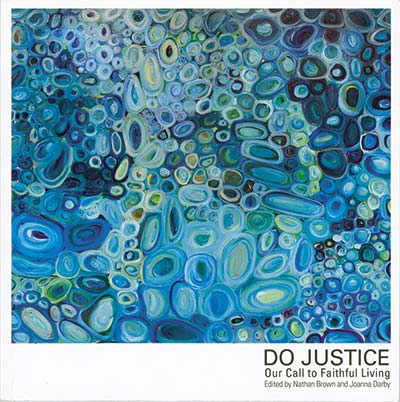

Do Justice: Our Call to Faithful Living, Nathan Brown and Joanna Darby, eds., Signs Publishing, Warburton, Victoria, Australia, 2014, 182 pages, US$19.95. Reviewed by Stephen Chavez, coordinating editor, Adventist Review.
While teaching a Sabbath school class recently, I asked, “On a scale of one to 10, with 10 being the highest, how compassionate is the Seventh-day Adventist Church?”
“Five,” said most of the respondents. “Two,” said a couple more. Only one individual said seven. Implied in those responses is the acknowledgment that as Christ’s disciples we are called to do as He did, but that we see a discrepancy between His ministry and our own; that we could, and should, do more to reflect Christ’s compassion to those in our communities.
The Gospels indicate that Jesus spent more time healing than teaching. And He seemed to have had “special regard for the least, the lost, the last, the lowest, and the left out,” in the words of Lowell C. Cooper, a general vice president of the General Conference, and one of the contributors to this book.
In Do Justice the editors have assembled an anthology from more than 25 Adventist authors who share their conviction that Christ’s commission to share the gospel also includes modeling God’s kingdom principles. In the kingdom we hope soon to inhabit there will be no poverty; no racial, ethnic, or gender inequality; no plundering of natural resources for short-term gain.
So this book raises the question: If that’s how it will be, then why not start modeling that now?
Some readers of Do Justice may find themselves surprised at the biblical mandate for God’s will to be done “on earth as it is in heaven” (Matt. 6:10). They will almost certainly be surprised by the passion with which our Adventist pioneers embraced causes such as racial equality, education, medical mission, and ministries to families broken apart by death, divorce, and addictions.
The authors of the essays are scholars, theologians, pastors, administrators, social activists, writers, and development specialists. And the writing style in the chapters reflects that diversity.
Do Justice is not just a book seeking to persuade its readers about the correctness of living justly in a complicated world—it is a call to action. No-where does it suggest that we lay down our Bibles to take up tools to help others in our communities. Instead it provides inspiration for marrying truth in belief and practice in ways that enhance our witness in both.
In the introduction the editors point out that more than 2,100 verses in the Bible speak against injustice, violence, and bigotry. That means that those 2,100 verses also contain God’s imperative that His followers live for justice, peace, and mutual understanding. They write: “Doing justice is a call to join with God in setting the world right. . . . proclaiming and anticipating the coming completion of His kingdom.”
What better way to await the Lord’s return?